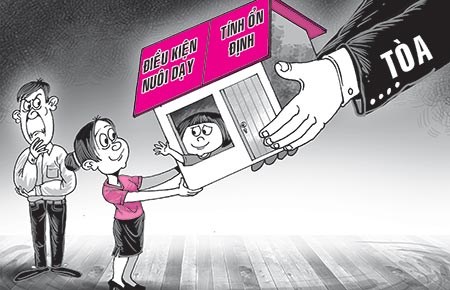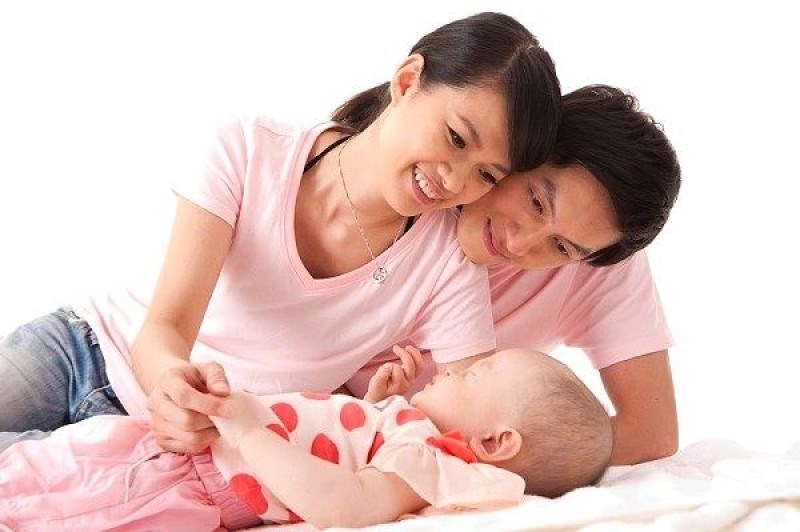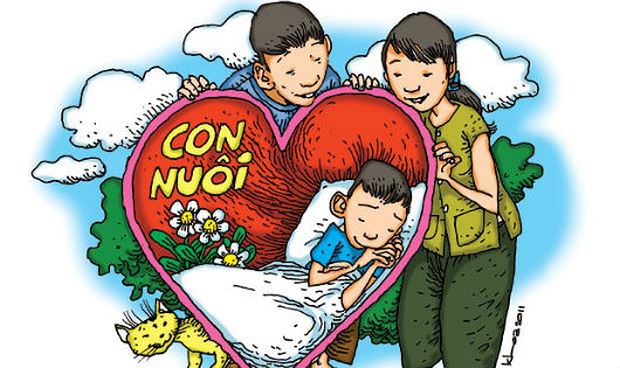The Law on Adoption was approved by the 12th National Assembly of Vietnam at its 7th session on June 17, 2010. The law consists of 5 chapters, 52 articles, specifies domestic adoption, intercountry adoption and responsibilities of state agencies for adoption. Compared to the current legal regulations, the Law on Adoption of Vietnam has several fundamental new points, including the following:
Firstly, regarding the principles of settlement of adoptions (Article 4)
- When settling adoptions, the right of children to live in the family of origin must be respected.
The family where a child is born is considered the ideal environment for the child's development. As they are still physically and intellectually vulnerable, children need to be protected and given special care in an atmosphere of love, happiness, and empathy from family members.
- Adoption must ensure the legitimate rights and interests of adopted and adopting persons, free consent, equality, non-discrimination between male and female and non-violation of law and social ethics.
During the adoption process, the best interests of the child must be given priority over the interests of the adoptive parent. Adoption should be carried out on a voluntary basis by all parties involved, without discrimination based on the gender, marital status, or whether the adoptive parent is single or married. Similarly, there should be no discrimination based on the gender of the child being adopted, whether they are a boy or a girl.
- Adoption by a person living abroad is allowed only when no domestic substitute family can be found.
This principle is also recognized in international legal documents. If family-based care is not feasible, alternative care measures within the country, including adoption, should be considered.
Only after reasonable consideration of domestic solutions and the inability to find a suitable family environment for the child should the option of international adoption be considered, and this should be done in the best interests of the child.
Secondly, regarding the measures to ensure domestic adoption, the Law on Adoption of Vietnam (Article 15) provides regulations on finding substitute families domestically to ensure that children have the opportunity to be adopted within the country.
The finding for a suitable family is carried out at three levels: commune, province, and central. At the commune level, the search for substitute families is carried out by posting notices at the People's Committee head office within a period of 60 days. At the provincial level, it is done by announcing through the province's public information channels within a period of 60 days. At the central level, it is done by posting on the electronic portal of the Ministry of Justice. If no domestic adoption family is found within this timeframe, only then will the child be considered for international adoption.
Moreover, Article 36 of the Law on Adoption stipulates that if the aforementioned time limit expires and a child is being considered for international adoption but the Department of Justice has not specifically introduced any particular prospective adoptive parents, and there are domestic individuals willing to foster the child, their request will still be considered.
Therefore, children in special circumstances are given the maximum opportunity to find a substitute family. The Law also provides that Vietnamese citizens who seek and are eligible to adopt a child under this Law but cannot find a child yet for adoption shall register their adoption needs with the provincial-level Justice Departments of the places in which they permanently reside (Article 16); if having a child for adoption, the provincial-level Justice Department shall introduce the prospective adoptive person to the commune-level People's Committee of the place in which the child permanently resides for consideration and settlement.
Thirdly, the law stipulates that the eligibility requirements for domestic and international adoption are the same. Additionally, the age for children to be placed in adoption has been raised from 15 years (according to current laws) to under 16 years old (Article 8). Moreover, persons aged between full 16 years and under 18 years may be adopted by the step father or step mother, by a natural aunt or uncle.
- Assurance of the right to know one's origin (Article 10)
This is a new provision of the law compared to the currently applicable regulations on adoption. This provision aims to affirm and protect the right of the adopted children to know their origins and clearly states the responsibilities of relevant agencies, organizations, and individuals in ensuring the right of the adopted children to know their origins when they reach adulthood and request such information.
Fourthly, Article 12 of the Law stipulates that adopting persons shall pay an adoption registration fee; a foreigner not permanently residing in Vietnam and seek to adopt a child in Vietnam shall pay a sum of money to partly offset expenses for settling intercountry adoptions, including expenses for nurturing, caring for and educating the child from the time of introduction for adoption to the time of completion of procedures for the child's delivery and receipt, verifying the origin of the introduced child, delivering and receiving the child and reasonable remuneration for the nurturing center's employees.
Fifthly, there is a new approach to introducing children for international adoption. Currently, the introduction of children for adoption is carried out by childcare facilities. However, the Law on Adoption (Article 36) stipulates that the authority to introduce children for international adoption lies with the Department of Justice.
Sixthly, regarding the registration of adoption in practice, to protect the rights and interests of all parties involved, the Law (Article 50) stipulates that adoptions between Vietnamese citizens which were established before the effective date of this Law (January 01, 2011) but have not yet been registered with a competent state agency may be registered within 5 years after this Law takes effect if the following conditions are met: the involved parties meet all adoption conditions prescribed by law at the time of arising of their adoption relationships; the parent and child relationships still exist and both parties are still alive by the time this Law takes effect; caring, nurturing and education ties exist between the adoptive parents and adopted child like between natural parents and child.
Adoption that is not registered from the effective date of the new Law will not be legally recognized.
Seventhly, the Law clearly and transparently regulates the licensing requirements for foreign adoption organizations operating in Vietnam. According to the current regulations, organizations must meet two conditions: having a registered office and a humanitarian support project in order to be allowed to operate as foreign adoption organizations in Vietnam. However, the Law on Adoption stipulates that organizations that meet certain conditions, such as operating legally, being granted permission by competent authorities, having at least 3 consecutive years of experience in international foster care, having staff members with knowledge of the law and meeting ethical and professional standards, will be considered for licensing as foreign adoption organizations operating in Vietnam.
The Law on Adoption of Vietnam takes effect from January 01, 2011.
Source: Lieu Lap - Department of Justice of Thai Binh Province
- Key word:
- Law on Adoption 2010
 Article table of contents
Article table of contents










.Medium.png)
.Medium.png)
.Medium.png)
.Medium.png)
